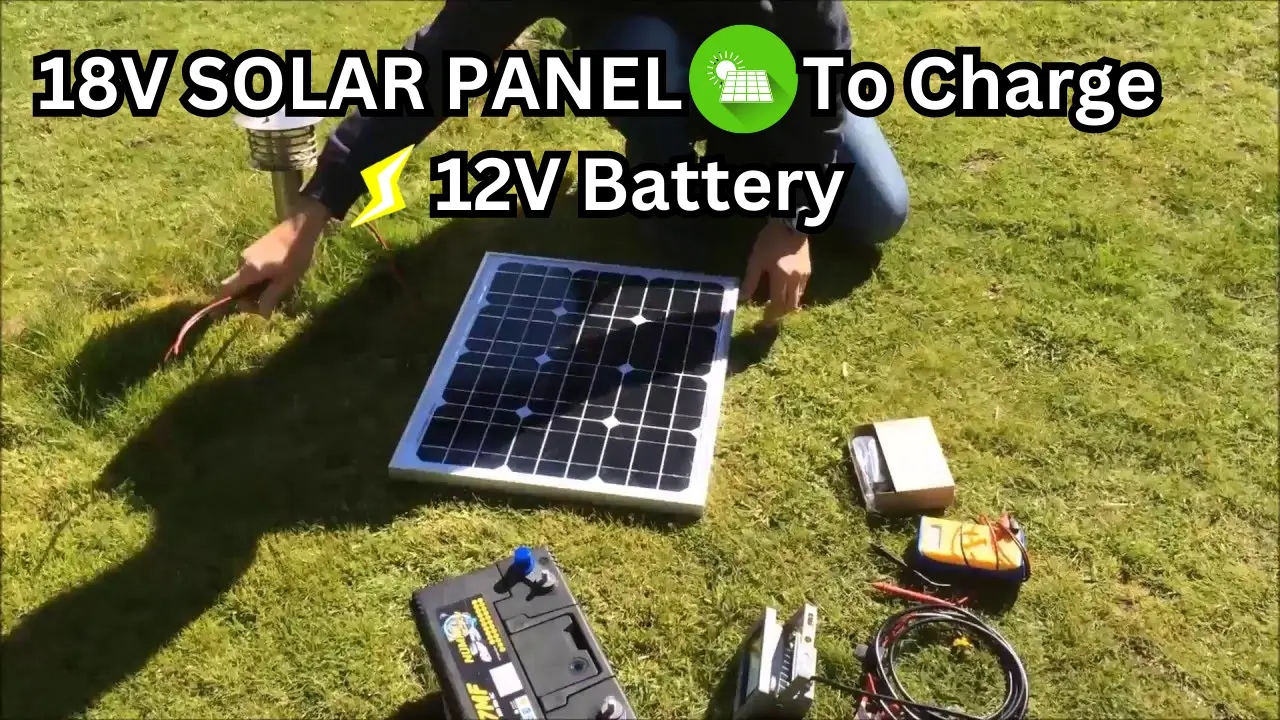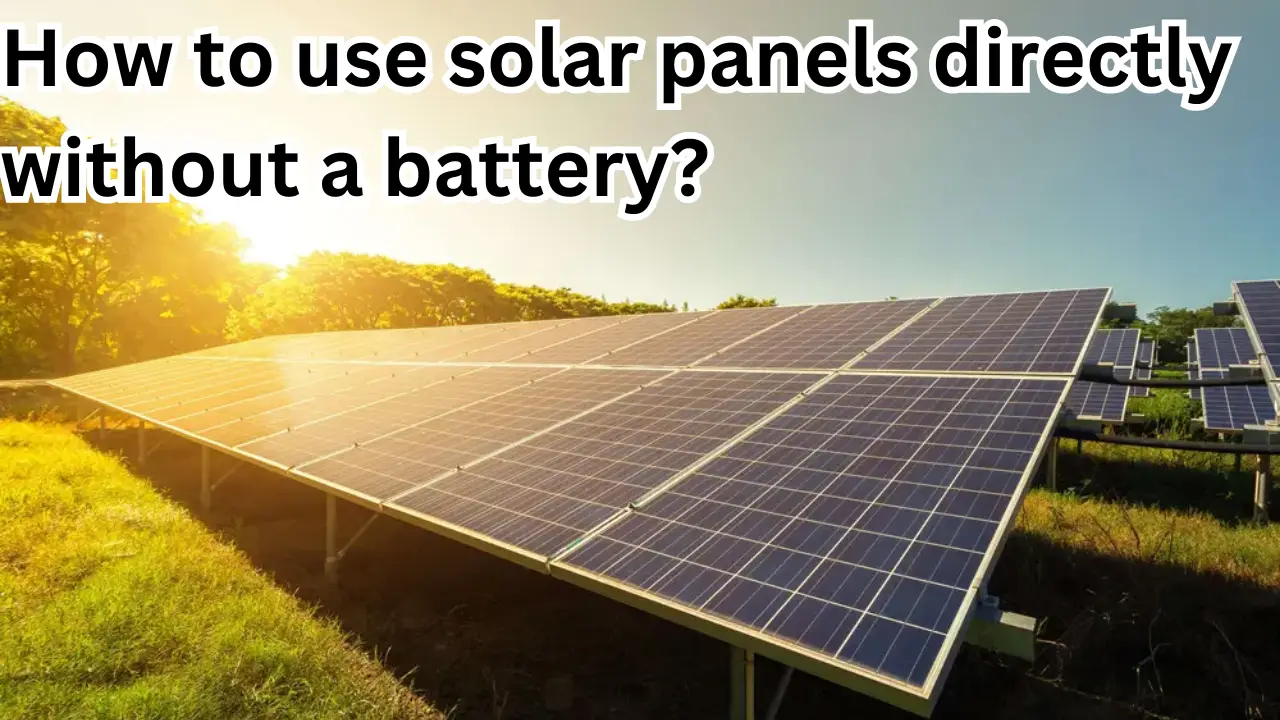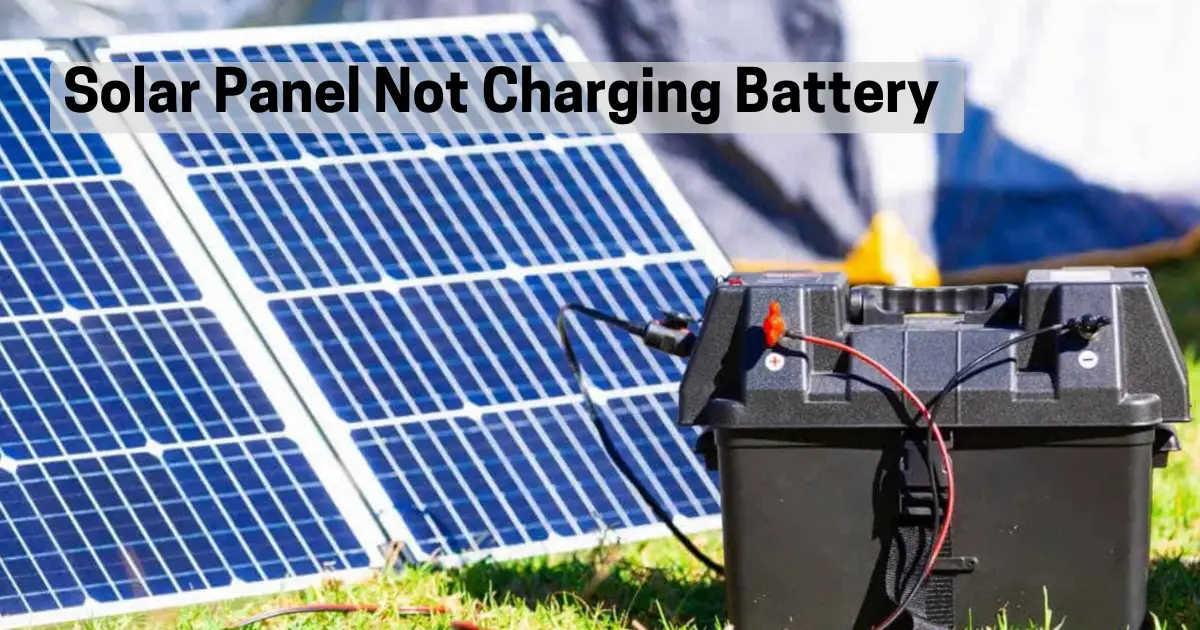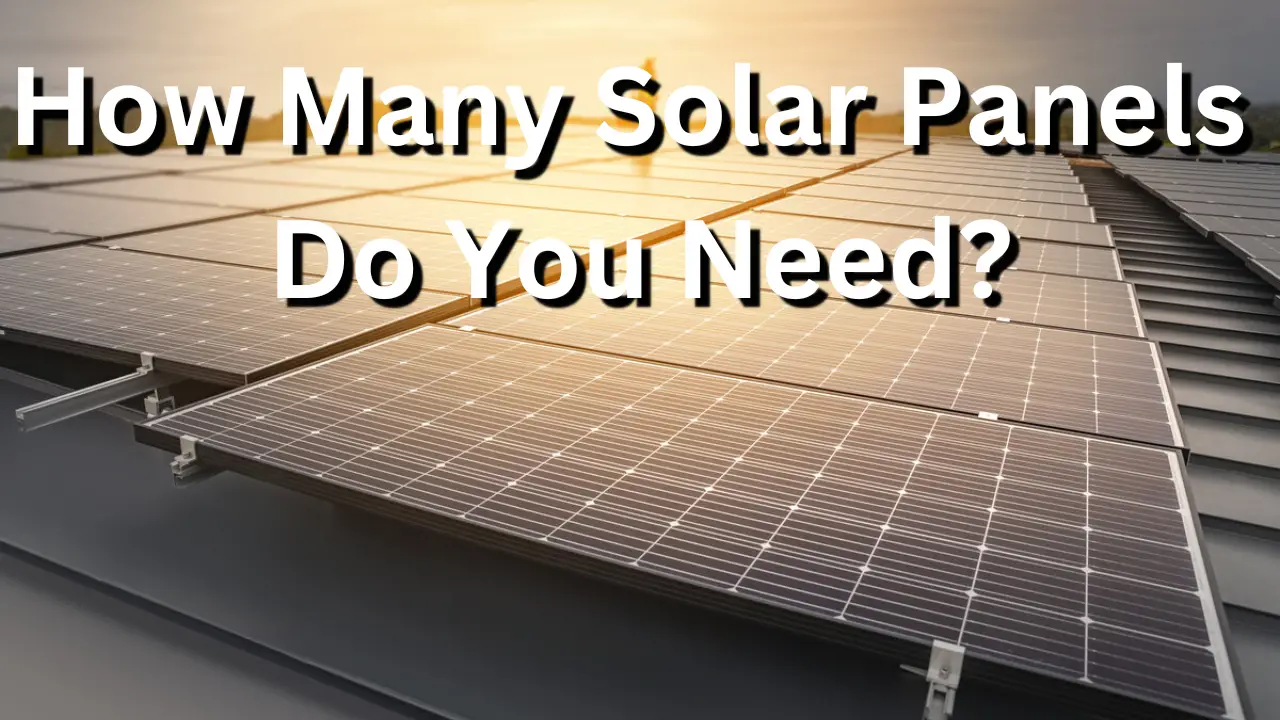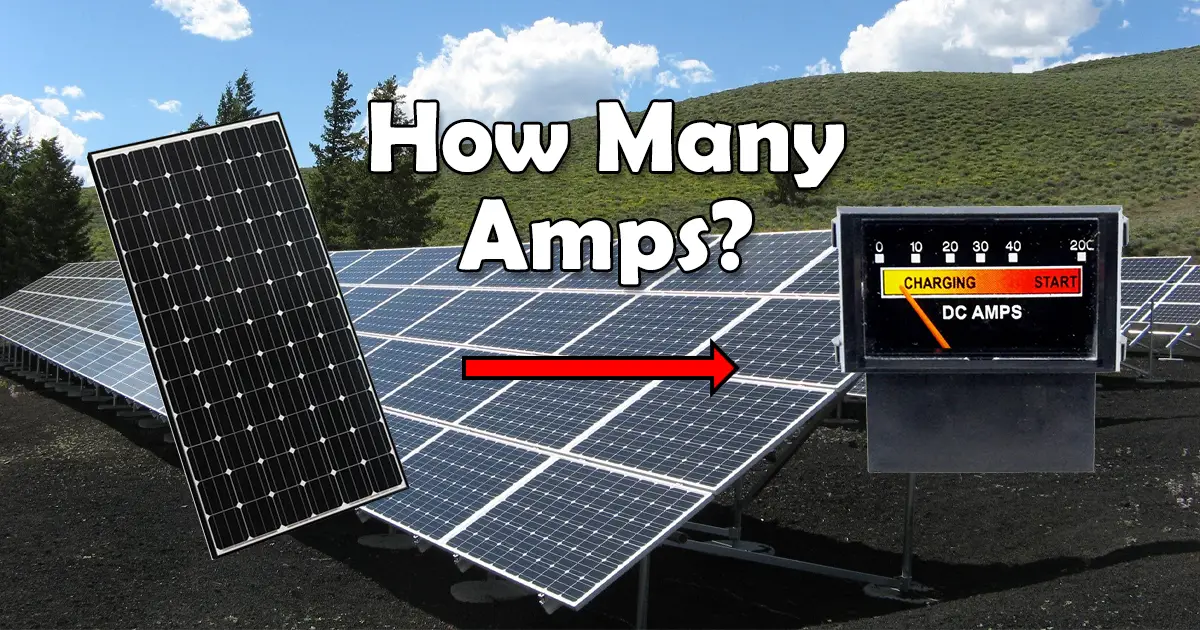What makes solar panels with 12 and 18 volts different? There are typically no differences. Early solar panels were typically connected directly and regularly to 12V batteries for recharge.
Any battery to which you connect the solar panel will have the same voltage. The solar panel won’t generate any electricity and won’t be able to charge the battery if the battery voltage is more than the open circuit voltage.
An 80W panel will produce between 16 and 18 volts if more than six cells are shaded. Hence it cannot directly charge a 12-volt battery. There are various methods you can use to charge your battery because it could be hazardous to connect two incompatible devices together (different volts)!
To charge a 12V battery with an 18V solar panel, use a charge controller or DC-DC converter. The battery could be harmed by a direct connection. In comparison to PWM, an MPPT charge controller is more effective for this process. A 12V battery may be charged by a 100W panel in 2 to 4 hours.
Understanding the Voltage Difference
The voltage of a solar panel, as the name suggests, relates to its output voltage under specified circumstances, often in full sunlight. Around 18 volts of electrical potential is what an 18V solar panel is intended to deliver.
A 12V battery, on the other hand, is meant to be charged at a voltage of roughly 12 volts. The issue of whether it is possible to connect the two directly is brought up by the voltage mismatch.
Potential Risks
Directly connecting an 18V solar panel to a 12V battery can provide risks and difficulties. One danger is that the battery could sustain irreparable damage from the higher voltage from the solar panel.
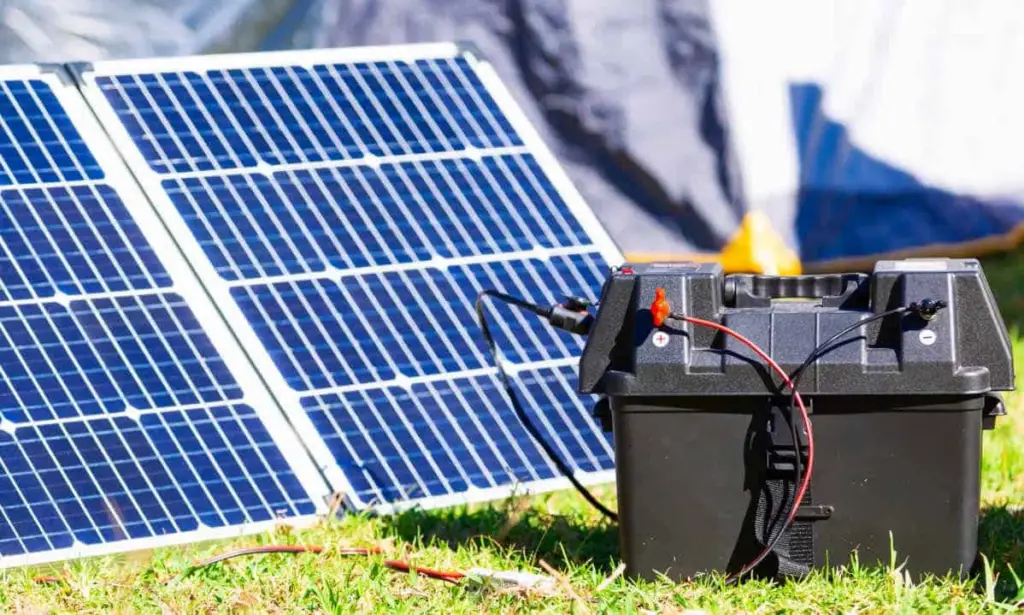
Furthermore, the solar panel won’t produce enough electricity to effectively charge the battery if the battery voltage is higher than the open circuit voltage of the panel.
How Do I Connect A 12V Battery To An 18V Solar Panel?
12V batteries can be imposed at 12V (up to 14V), depending on the type and level of charge of the built-in rechargeable.
A battery will accept a larger voltage while it is depleted, but as it is refilled, the input voltage limit will decrease. Therefore, there is a chance of the 12V battery suffering irreparable damage if it is connected directly to the 18V solar panel.
Be advised that this kind of damage is not covered by the warranty. You can use the following gadgets to charge different solar panel sizes from a 12-volt battery.
Use a charge controller.
A solar charge controller is a device that adjusts solar panel voltage in accordance with battery voltage.
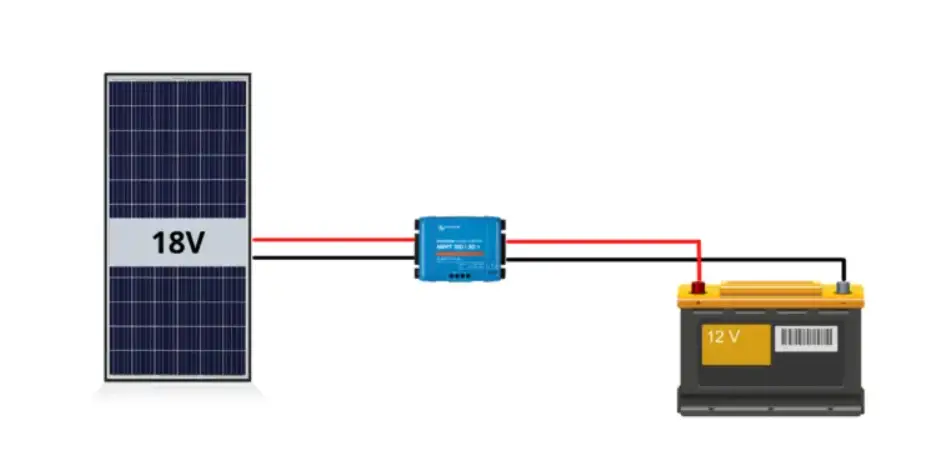
As an illustration, in this scenario, a charge controller will reduce the 18 volts flowing from the solar panel to 12 volts in order to charge the battery. Simply put, it is the primary function of a charge controller or solar regulator.
However, there are two different types of charge controllers: PWM and MPPT. Which is better?
PWM Charge Controller
To put it simply, a PWM charge controller will reduce the higher voltage from the solar panels to match the battery’s voltage while maintaining the same amps, which reduces their efficiency and results in a loss of power. This is how
Watts are a unit of total power; therefore, to calculate watts, multiply volts by amps.
To calculate amps (Amps = watts/volts), we know that an 18V 100W solar panel will generate 25v (open circuit voltage) in optimum sunlight circumstances.
Watts / volts = amps
100/25 = 4.1 Amps
Under typical test settings, an 18v 100w solar panel will supply 4.1 amps.
In this instance, the PWM charge controller will reduce the voltage to 12 volts while maintaining the same amount of amps (4.1), resulting in a 50-watt output.
Woah, where have the remaining 50 watts gone? Well, the PWM charge controller caused you to lose them. From here, the MPPT charge controller begins to operate.
MPPT Charge Controller
In addition to adjusting the voltage output from solar panels in accordance with battery voltage, MPPT Charge Controllers also raise the amps proportionally, making them 30% more efficient than PWM Charge controllers.
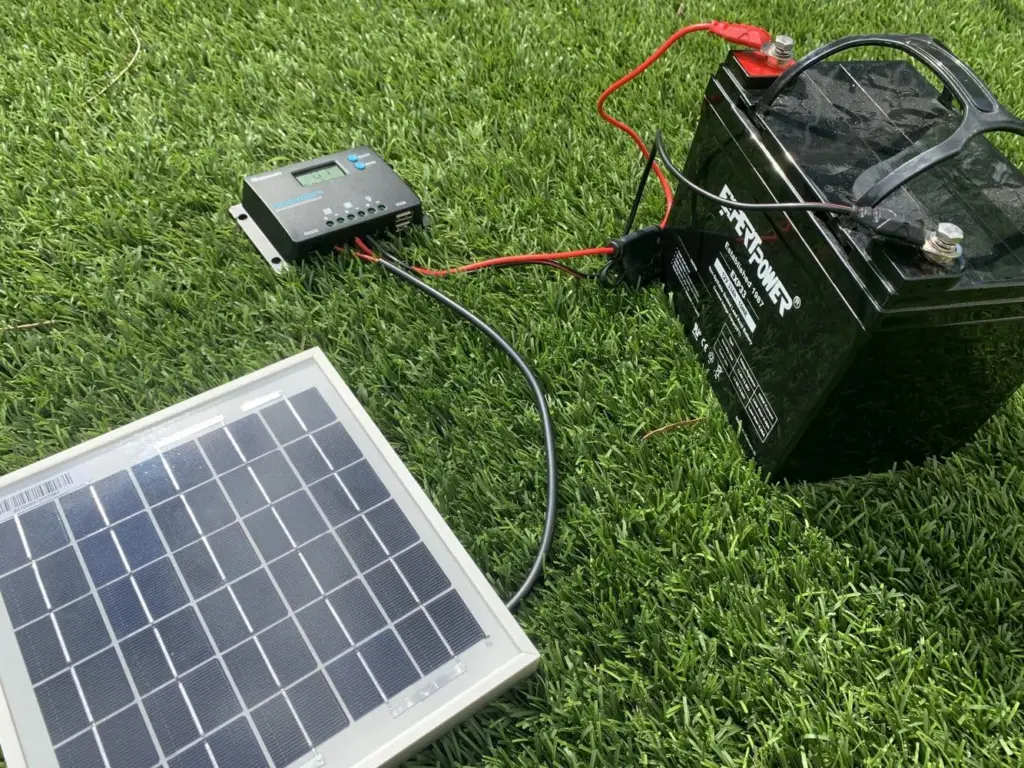
Therefore, we advise using an MPPT charge controller if you’re using an 18-volt, 24-volt, or even 48-volt solar panel to charge your 12-volt battery.
You can use a PWM charge controller with a 12v solar panel to charge a 12v battery, but there will still be some power losses.
Use a DC-DC converter
A DC-DC converter resembles a less expensive charge controller. This converter will also reduce the high voltage from the solar panels to 12 volts so that a 12-volt battery can be charged.
But they will result in a power loss, just like PWM charge controllers. If you’re utilizing a large-size solar panel, the difference will be significant.
However, you can use this device with a 20W or 50W solar panel. You will still experience some power loss, but it won’t be significant.

Is it Possible to Directly Connect a Different Volt Solar Panel to the battery?
An 18-volt solar cell will produce 22 to 25 volts under optimal conditions of direct sunshine. Therefore, if you’re using a 5W solar panel, you can connect multiple voltage solar panels to the battery, meaning an 18-volt solar panel can be used to charge a 12-volt battery.
The voltage has dropped to somewhere between 24 and 25 volts; how can you use the solar panel’s 24-volt output to recharge your 12-volt battery? For solar panels that are more powerful than 5 watts, a charge controller is required to regulate the voltage they produce in order to power the battery.
The battery could sustain long-term damage if you use a solar panel with an output of more than 5W. A 12-volt battery may sustain irreparable harm if a solar panel of a different voltage is connected to it directly.
How quickly can a 12V battery be charged by a solar panel?
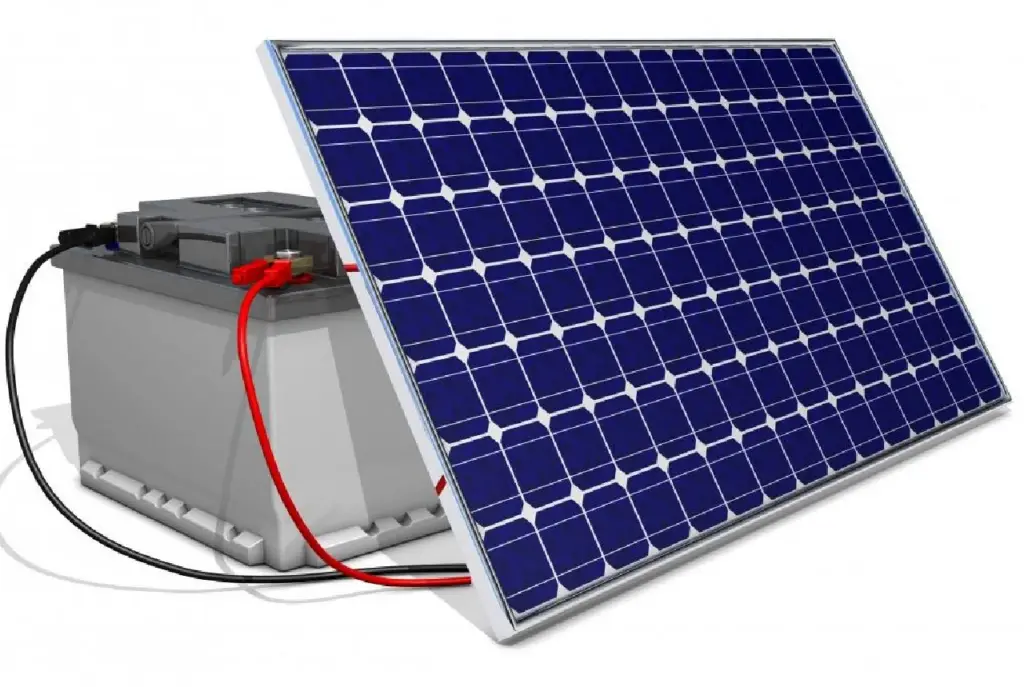
The total charging time may change based on the state of the battery. It will take a 100-watt solar panel two hours to recharge a typical 12v 50Ah vehicle battery. 50% depleted 12v 50Ah lead-acid batteries may be fully recharged in 4 hours by a 100-watt solar panel.
100 amp-hour batteries will take five hours to fully charge at 12 volts, 20 amps. Installing a 300w solar panel is necessary since 20 amps multiplied by 12 volts gives you the required panel size of 240 watts.
Final Words
You can utilize an 18v or 24v solar panel to charge a 12v battery with the aid of a charge controller or DC-DC converter; an MPPT charge controller will be more effective in this situation.

